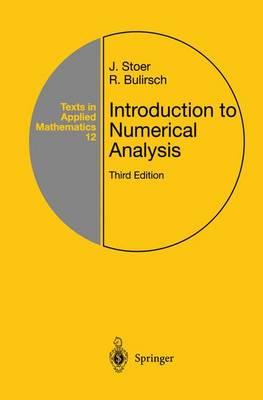Overview
Mathematics is playing an ever more important role in the physical and biological sciences, provoking a blurring of boundaries between scientific disciplines and a resurgence of interest in the modern as well as the classical techniques of applied mathematics. This renewal of interest, both in re search and teaching, has led to the establishment of the series Texts in Applied Mathematics (TAM). The development of new courses is a natural consequence of a high level of excitement on the research frontier as newer techniques, such as numeri cal and symbolic computer systems, dynamical systems, and chaos, mix with and reinforce the traditional methods of applied mathematics. Thus, the purpose of this textbook series is to meet the current and future needs of these advances and to encourage the teaching of new courses. TAM will publish textbooks suitable for use in advanced undergraduate and beginning graduate courses, and will complement the Applied Mathe matical Sciences (AMS) series, which will focus on advanced textbooks and research-level monographs.
Full Product Details
Author: J. Stoer ,
R. Bartels ,
R. Bulirsch ,
W. Gautschi
Publisher: Springer-Verlag New York Inc.
Imprint: Springer-Verlag New York Inc.
Edition: Third Edition 2002
Volume: 12
Dimensions:
Width: 15.60cm
, Height: 4.10cm
, Length: 23.40cm
Weight: 2.740kg
ISBN: 9780387954523
ISBN 10: 038795452
Pages: 746
Publication Date: 21 August 2002
Audience:
Professional and scholarly
,
College/higher education
,
Professional & Vocational
,
Postgraduate, Research & Scholarly
Format: Hardback
Publisher's Status: Active
Availability: Out of print, replaced by POD

We will order this item for you from a manufatured on demand supplier.
Reviews
From the reviews of the third edition: <p> This is the third edition of a famous work on the basics of numerical analysis. It is a well-written textbook for advanced undergraduate/beginning graduate students containing both classical methods and modern approaches to numerical mathematics. The theory is illustrated by many interesting examples, and carefully selected exercises lead the reader to a better understanding of the topics discussed. a ] The third edition contains new material and several improved passages and will be useful also for those who already use the previous editions. (European Mathematical Society Newsletter, September, 2003) <p> This is the third edition of a textbook first published in 1980. It is intended as a comprehensive introduction to a ] numerical analysis for the final year undergraduate or beginning graduate student. a ] As a reference work it is clearly organized and the table of contents a ] makes it easier to refer to individual sections. a ] it will serve both as an invaluable reference and as a means to acquire some more theoretical background a ] . (Gerry Leversha, The Mathematical Gazette, Vol. 88 (512), 2004) <p> Among the booka (TM)s many particular features a ] we would like to emphasize the excellent presentation of the following topics: fast Fourier transform methods, thorough discussion of the most important minimization methods, solution of stiff or implicit ordinary differential equations, solution of differential algebraic systems, basics of multigrid methods. a ] This a ] makes the present well-written book very profitable for every reader interested in or working on problems of Numerical Analysis. (Ferenc MA3ricz, ActaScientiarum Mathematicarum, Vol. 69, 2003)
From the reviews of the third edition: This is the third edition of a famous work on the basics of numerical analysis. It is a well-written textbook for advanced undergraduate/beginning graduate students containing both classical methods and modern approaches to numerical mathematics. The theory is illustrated by many interesting examples, and carefully selected exercises lead the reader to a better understanding of the topics discussed. ... The third edition contains new material and several improved passages and will be useful also for those who already use the previous editions. (European Mathematical Society Newsletter, September, 2003) This is the third edition of a textbook first published in 1980. It is intended as a comprehensive introduction to ... numerical analysis for the final year undergraduate or beginning graduate student. ... As a reference work it is clearly organized and the table of contents ... makes it easier to refer to individual sections. ... it will serve both as an invaluable reference and as a means to acquire some more theoretical background ... . (Gerry Leversha, The Mathematical Gazette, Vol. 88 (512), 2004) Among the book's many particular features ... we would like to emphasize the excellent presentation of the following topics: fast Fourier transform methods, thorough discussion of the most important minimization methods, solution of stiff or implicit ordinary differential equations, solution of differential algebraic systems, basics of multigrid methods. ... This ... makes the present well-written book very profitable for every reader interested in or working on problems of Numerical Analysis. (Ferenc Moricz, Acta Scientiarum Mathematicarum, Vol. 69, 2003)




